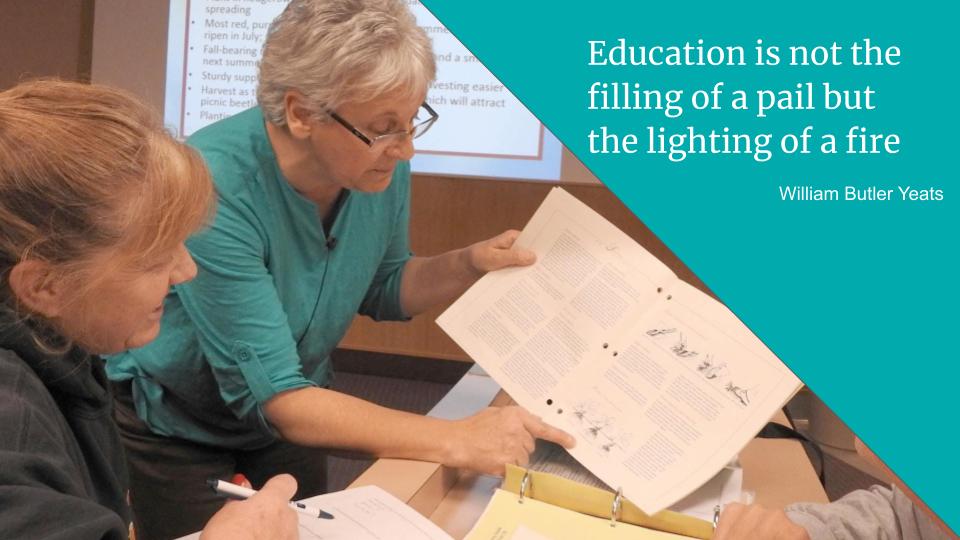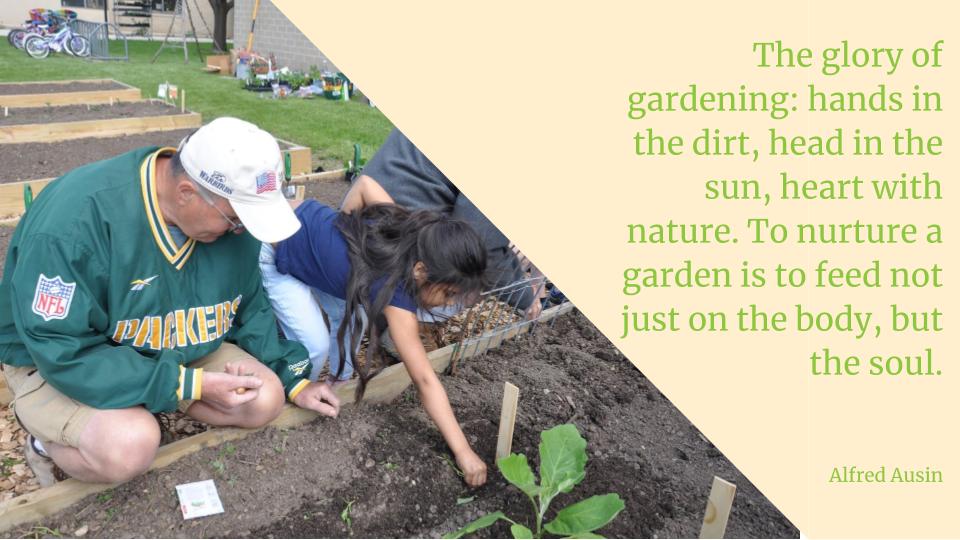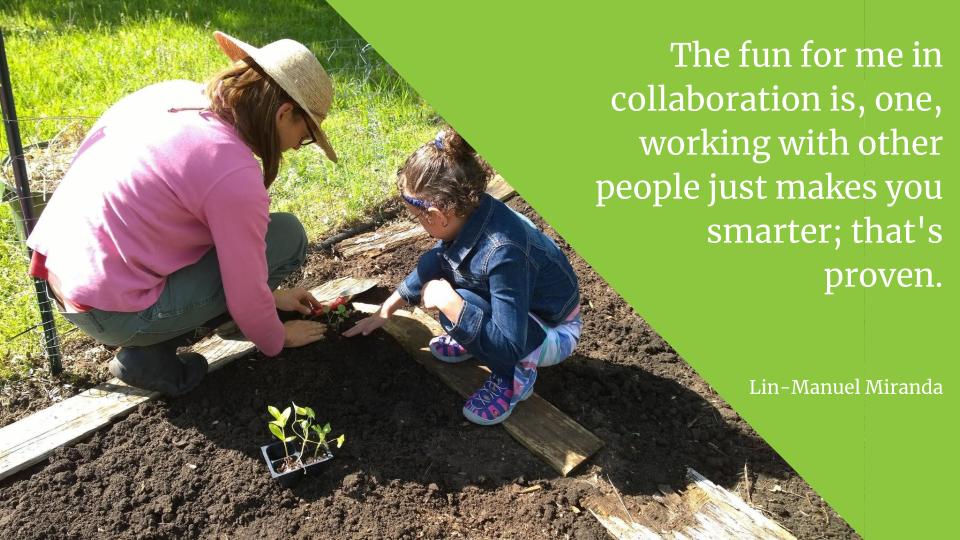Types of Volunteer Activities
Volunteering as a Master Gardener Volunteer includes different types of activities, as explained below. When you report your hours, you’ll choose one or more of the following categories of educating others, diagnostics, gardening, and project support. This is important as it helps us tell the story of what you do!
Educating Others

Educating others can happen in many different ways within the Master Gardener Program, not just teaching in front of a group. As a Master Gardener, you often connect people with information during a conversation with someone visiting a demonstration garden or a Master Gardener display booth. Instead of teaching a whole group, you provide personalized information to address that person’s particular needs.
Master Gardener Volunteers provide many different kinds of educational programs. Look at the examples below and consider the types of education you are able and willing to do in this role.
- Create educational displays for farm markets and fairs
- Design signage for display and community gardens
- Staff an educational booth at an event and talking plants with event visitors
- Make public presentations at libraries, schools, and events
- Write educational articles for newsletters and blog posts.
Diagnostics

The Master Gardener Program originated with the intent of training individuals to answer gardening questions. Because of its special status and additional training needed in the Master Gardener Program, diagnostics has its own special category when we talk about what volunteers do.
Diagnosing plant problems and answering garden questions from the general public takes extra training, time and practice. This module will not be able to teach you everything you need to know on how to do diagnostics. It will only introduce you to the seven simple diagnostic steps and connect you with additional support resources. If you have an interest in diagnostics, training is available through local and state programming.
Introduction to the Diagnostic Process
👩🏿💻 Click through the slides to read about the diagnostic process. Use the arrows in the lower right corner to expand to fullscreen. Use ESC to exit.
Gardening

Some of the approved Master Gardener Volunteer projects require physical garden work. These garden projects may be in partnership with partner organizations as part of some larger goal or purpose to bring change to a community. Participating in only approved projects with partner organizations keeps these activities focused on agreed upon goals and should avoid Master Gardener Volunteers being used as “free labor” for landscaping.
Volunteer garden projects that may require a bit of sweat equity include:
- Demonstration gardens that show new trends or proper methods for flowers, vegetables, and landscapes.
- Historical gardens that showcase older plant varieties or share historical gardening methods.
- School gardens for youths or teens.
- Hunger prevention gardens that may supply fresh produce to local food pantries and/or help low-income community members learn to grow their own food.
- We also borrow from our community development colleagues and apply the principles of placemaking to guide planting projects that promote community in public places.
Important!
For safety and liability reasons for you and those around you, a few things are off limits to Master Gardener Volunteers.
- No chainsaws.
- No flamethrowers.
- No restricted-use pesticides.
These three things exceed the scope of any training provided within this program and you cannot use these items while volunteering.
Project Support

Successful programs need intentional thought and planning. Most volunteer projects also require administration and preparation. We recognize the importance of these efforts. Volunteers can claim their hours related to the project support of approved projects, programs, and activities.
This includes but is not limited to:
- Writing project descriptions
- Recruiting and organizing volunteers for a project
- Evaluating projects
- Gathering supplies for a project
- Marketing and promoting projects
- Managing social media
- Completing office-type work that may include but is not limited to making copies of MG handouts, assisting with registration of Extension MG educational programs, collating, assisting with a mailing, etc.
Writing articles about plants, creating educational displays or presentations, and researching for these types of projects are better reported under Education.
